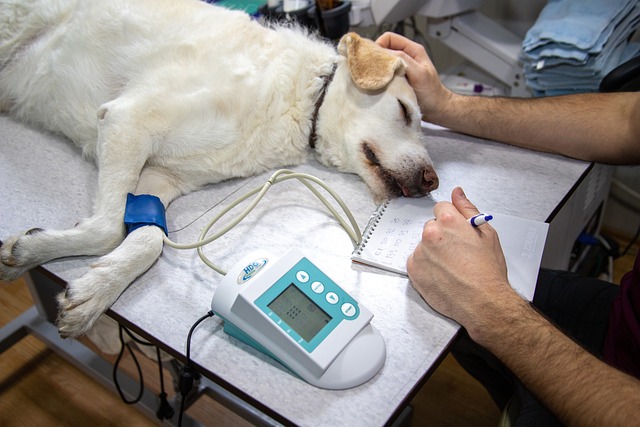Veterinary services: how to choose the right care for your pet's health and well-being
Choosing the right veterinary care for your beloved pet is a crucial decision that can significantly impact their health and well-being. With numerous options available, it's essential to understand what to look for in a veterinarian and their services. This article will guide you through the process of selecting the best veterinary care for your furry friend, ensuring they receive the attention and treatment they deserve.

What qualifications should I look for when choosing a veterinarian?
When selecting a veterinarian, it’s important to consider their qualifications and credentials. Look for a licensed veterinarian who has completed a Doctor of Veterinary Medicine (DVM) degree from an accredited veterinary school. Additionally, check if the veterinarian is a member of professional organizations such as the American Veterinary Medical Association (AVMA) or its equivalent in your country. These memberships indicate a commitment to staying updated with the latest developments in veterinary medicine.
Consider veterinarians who have pursued additional certifications or specializations relevant to your pet’s needs. For example, if you have an exotic pet, look for a veterinarian with experience in treating that specific species. Board-certified specialists in areas like internal medicine, surgery, or dermatology can provide advanced care for complex health issues.
How can I evaluate a veterinary clinic’s services and facilities?
Evaluating a veterinary clinic’s services and facilities is crucial to ensure your pet receives comprehensive care. Start by scheduling a tour of the clinic to assess its cleanliness, organization, and overall atmosphere. A well-maintained facility with modern equipment is a good indicator of quality care.
Inquire about the range of services offered, including preventive care, diagnostic capabilities, surgical procedures, and emergency services. A clinic that provides a wide array of services under one roof can be convenient and beneficial for your pet’s long-term care. Ask about their laboratory facilities and whether they have in-house diagnostic equipment like X-ray and ultrasound machines, which can lead to faster diagnoses and treatment.
Why are regular checkups important for my pet?
Regular checkups are essential for maintaining your pet’s health and detecting potential issues early. These visits allow veterinarians to monitor your pet’s overall health, update vaccinations, and perform necessary screenings. Early detection of health problems can lead to more effective treatments and better outcomes.
During checkups, veterinarians can also provide valuable advice on nutrition, behavior, and preventive care tailored to your pet’s specific needs. These visits are an opportunity to discuss any concerns you may have about your pet’s health or behavior, ensuring they receive comprehensive care throughout their life.
What should I consider regarding a clinic’s communication and availability?
Effective communication between you and your veterinarian is crucial for your pet’s care. Consider how responsive the clinic is to phone calls or emails and whether they offer clear explanations of diagnoses and treatment options. A good veterinary practice should be willing to answer your questions and provide educational resources about pet health.
Availability is another important factor. Look for a clinic with convenient hours that fit your schedule and inquire about their policies for after-hours emergencies. Some clinics offer 24/7 emergency services, while others may refer you to a nearby emergency hospital. Understanding their availability and emergency procedures can give you peace of mind in critical situations.
How can I assess the quality of care and compassion in a veterinary practice?
Assessing the quality of care and compassion in a veterinary practice involves observing how the staff interacts with both pets and their owners. Pay attention to how the veterinarians and technicians handle animals during examinations and procedures. A compassionate team will strive to make pets feel comfortable and minimize stress during visits.
Consider reading reviews from other pet owners or asking for recommendations from friends and family. Personal experiences can provide valuable insights into the level of care and attention provided by a veterinary practice. A clinic that demonstrates genuine concern for animal welfare and treats pets with kindness and respect is likely to provide high-quality care.
What factors should I consider regarding the cost of veterinary services?
When evaluating veterinary services, it’s important to consider the cost of care alongside the quality of services provided. While price shouldn’t be the sole determining factor, understanding the fees associated with various services can help you plan for your pet’s healthcare expenses.
| Service | Average Cost Range |
|---|---|
| Annual Checkup | $50 - $250 |
| Vaccinations (per vaccine) | $15 - $50 |
| Spay/Neuter Surgery | $200 - $500 |
| Dental Cleaning | $200 - $600 |
| Emergency Visit | $100 - $300 (initial exam) |
Prices, rates, or cost estimates mentioned in this article are based on the latest available information but may change over time. Independent research is advised before making financial decisions.
Consider asking about payment plans or pet insurance options that the clinic may offer or accept. Some veterinary practices provide wellness plans that cover routine care for a fixed monthly fee, which can help manage costs for preventive services. Remember that investing in regular preventive care can often save money in the long run by avoiding more serious health issues.
Choosing the right veterinary care for your pet involves careful consideration of multiple factors, including the veterinarian’s qualifications, the clinic’s facilities and services, the importance of regular checkups, communication and availability, quality of care, and cost considerations. By taking the time to evaluate these aspects, you can ensure that your pet receives the best possible care throughout their life, promoting their health, happiness, and longevity.
This article is for informational purposes only and should not be considered medical advice. Please consult a qualified healthcare professional for personalized guidance and treatment.






